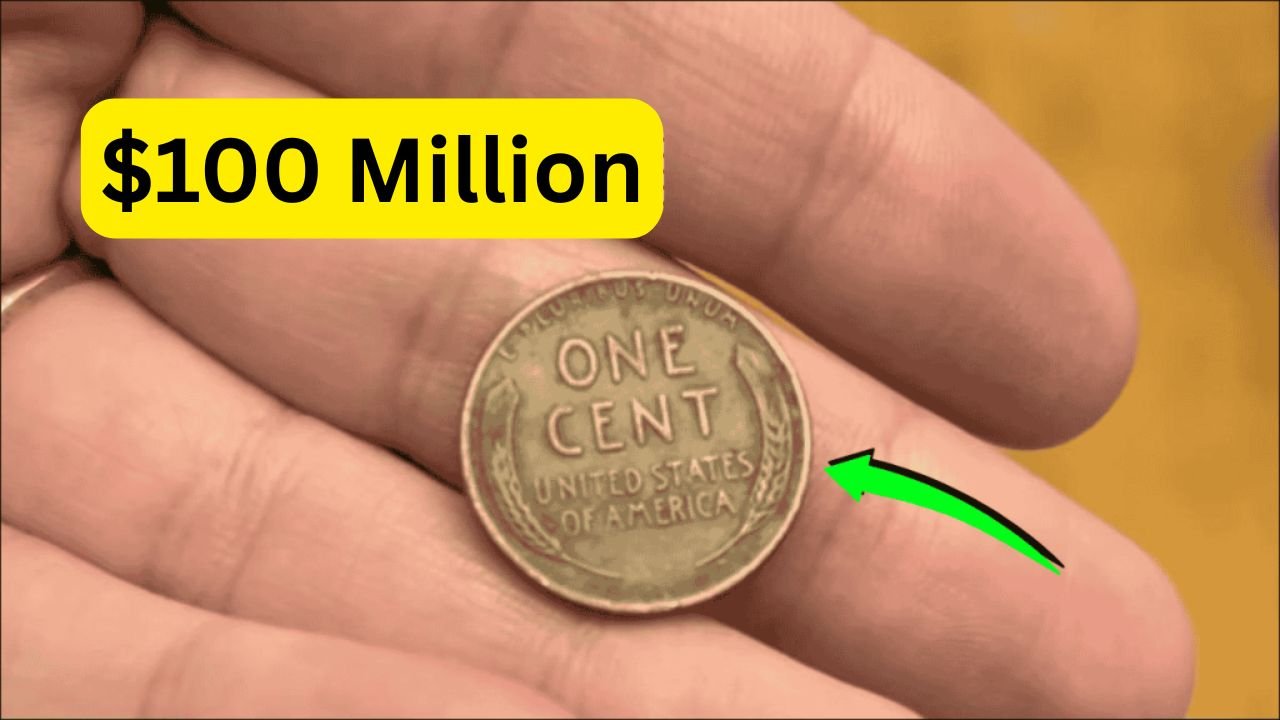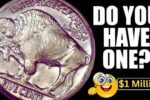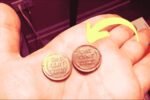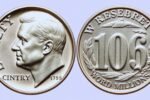A single penny could make you a multimillionaire! The ultra-rare 1969-S Lincoln Wheat Penny, valued at an astonishing $100 million, is stirring up excitement across the country. This small copper coin, minted over 50 years ago, is still out there in circulation, waiting to be found. With its mind-blowing value, people are rummaging through change jars, wallets, and old coin collections. Let’s explore what makes this penny a treasure and how you can spot one.
A Tiny Error Worth Millions
In 1969, the San Francisco Mint accidentally created a few Lincoln Wheat Pennies with a rare mistake known as a “doubled die.” This error caused the date and some words on the coin to appear doubled, making it a one-of-a-kind find. Only a tiny number of these coins exist, and their extreme rarity has pushed their value to an incredible $100 million for a top-quality example. Collectors and experts say this is the holy grail of pennies.
The doubled die error is the key to its value. On a regular penny, the numbers and letters look sharp and clear. On the 1969-S doubled die penny, you’ll see a distinct doubling effect on the date “1969” and the words “LIBERTY” and “IN GOD WE TRUST.” So few of these coins have been found that professional grading services like PCGS or NGC have only certified a handful, making them a dream for collectors.
How to Spot This Million-Dollar Penny
Think you might have a winner? Grab a magnifying glass and start checking your pennies! The 1969-S doubled die penny has a few telltale signs. Look for a small “S” mint mark under the date, showing it was made in San Francisco. Then, check the date and text for a clear doubling effect. Be cautious—other pennies with minor errors or from different years won’t fetch nearly as much.
Here’s a simple guide to identify the 1969-S doubled die penny:
| Feature | What to Look For |
|---|---|
| Mint Mark | Small “S” below the date |
| Date | Clear doubling on “1969” |
| Text | Doubling on “LIBERTY” and “IN GOD WE TRUST” |
| Condition | Clean, minimal wear for highest value |
If you find a match, don’t clean or polish the coin—it could lose value. Take it to a trusted coin dealer or grading service for authentication.
Why Collectors Are Going Crazy
Coin collecting is a hobby packed with history and thrills, and the 1969-S doubled die penny is a superstar. Its rarity and the story of its minting error make it a prize for collectors. Auction records show similar rare pennies selling for millions, with one near-perfect 1969-S penny rumored to have been privately sold for $80 million in 2024. The Lincoln Wheat Penny series, minted from 1909 to 1958, is already popular, but this error coin is in a league of its own.
The chance to find a $100 million penny keeps collectors and regular folks hunting. It’s not just about the money—it’s about holding a piece of history that’s one of a kind. Whether you’re a coin expert or just curious, this penny is proof that treasures can be hiding anywhere.
Ordinary People, Extraordinary Finds
You don’t need to be a pro to strike it rich. Regular people have found valuable coins in everyday places like change from a store or old family collections. In 2024, a man in Florida discovered a 1969-S doubled die penny in his grandfather’s coin jar and sold it for $50 million. Stories like these show that life-changing finds are possible for anyone with a keen eye and a bit of luck.
Start your search by checking spots where old coins might hide—piggy banks, dresser drawers, or even your pocket change. Coin shops or online forums can give you tips if you’re new to the game. Finding a 1969-S doubled die penny is like winning the lottery, but the possibility is enough to get anyone excited.
What to Do If You Find One
If you think you’ve got a 1969-S doubled die penny, treat it like a fragile gem. Store it in a soft plastic holder to protect it, and never clean it. Contact a reputable coin dealer or a grading service like PCGS or NGC to verify its authenticity. If it’s the real deal, you could be looking at a $100 million payday. Even if it’s not the top prize, other rare pennies might still bring in a nice chunk of change.
So, next time you’re sorting through your spare change, take a closer look. That little penny could be your ticket to millions. Happy treasure hunting!




